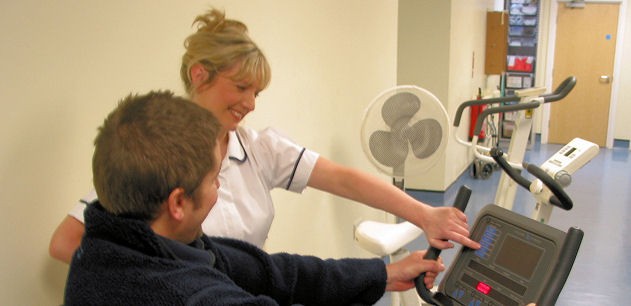What we do
Physiotherapy is the treatment of physical problems caused by accidents, illness and ageing. Treatment is mainly focused on physical problems that affect the muscles, bones, heart, circulation and lungs.
Physiotherapy helps to alleviate pain, restore normal movement and function and return the body to its natural balanced state without the use of medication or drugs. Central to this is the patient taking an active role in realising the social, cultural and psychological factors that will help them to be as independent and active as possible.
A Physiotherapist – or Physio – will use their knowledge and training, along with their experience of helping patients, to decide on your best course of treatment. The level and frequency of your treatment will depend on the type and severity of your illness or injury.
Physios play a large role in rehabilitating people after illness or accidents. Health education, aimed at preventing disease and injury, is also an important part of their work.
Contact Us
Whinney Heys Road, adjacent to the Outpatient Department.
Monday to Friday, 8am to 4.30pm.
Contact 01253 953512.
Please inform the Receptionist when you arrive if you have a pacemaker or may be pregnant. Mobile phones must be switched off in patient treatment areas.
The following are just some of the departments our Physiotherapists work in and the treatments they carry out:
Outpatients
Spinal and joint problems, accidents and sports’ injuries.
Intensive Care
Keeping limbs mobile and chests clear.
Women’s Health
Advising on ante and post-natal care, exercise and posture and managing incontinence and post-gynaecological operations.
Care of Elderly
Maintaining their mobility and independence, rehabilitation after falls or treating arthritic problems.
Stroke Patients
Helping people with paralysed limbs to restore normal movement.
Orthopaedics
Helping after hip, knee and other joint replacements; treating patients who have had accidents.
Mental Illness
Holding relaxation and body awareness classes and improving confidence and self-esteem through exercise.
Occupational Health
Working within organisations treating employees and looking at the way people work to help prevent repetitive strain injury.
People with Learning Difficulties
Developing people’s potential through sport and recreation; assessing and providing specialist footwear, seating and equipment.
Paediatrics
Providing assessment and treatment for neonates with congenital deformities
i.e. congenital foot deformities; treating children following accidents; aiding children with chest conditions; helping children with mental and physical conditions.
Community
Treating a wide range of patients at home and giving advice to those who care for people.
Surgical Wards
Helping patients after surgery to keep their chest clear, exercise to get stronger and help to start walking again.
Medical Wards
Helping patients after illness to keep their chest clear, exercise to get stronger and help to start walking again. Treatments can be split into inpatient and outpatients sections.
Inpatients
Mobilisation – Getting patients walking after illness, injury or surgery
Respiratory Care – Advising patients of chest clearance techniques and management of long term chest conditions
Exercise – Advising patients on appropriate exercise to improve movement and muscle strength.
Amputee Physiotherapy
Helping people who have undergone a limb amputation to maintain independence and improve mobility. Treatments:
Amputee rehabilitation – This can include strengthening exercises, balance exercises and prosthetic rehabilitation.
Patients are normally referred to the department by a Consultant based in the hospital. Outpatient referrals are taken from Consultants and direct from the Accident and Emergency (ED) department. Physiotherapy uses a booked appointment system and referrals are prioritised as necessary.
Inpatient referrals are made by Doctors or Nursing staff on hospital wards. Some areas have an open referral system and the Physios will decide for themselves who requires treatment.
At your appointment you will be assessed by your Physio who will decide on the appropriate treatment. Depending on your illness or injury, this treatment might involve: acupuncture, exercise, electrotherapy, facial stimulator, hydrotherapy, mobilisations/manipulations, muscle imbalance/stability work, and traction.
The hospital does not accept GP referrals apart from in some specialist areas.




